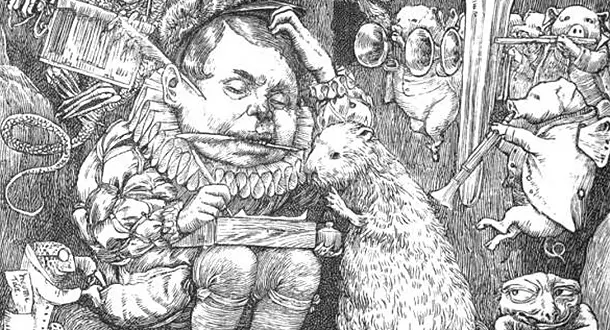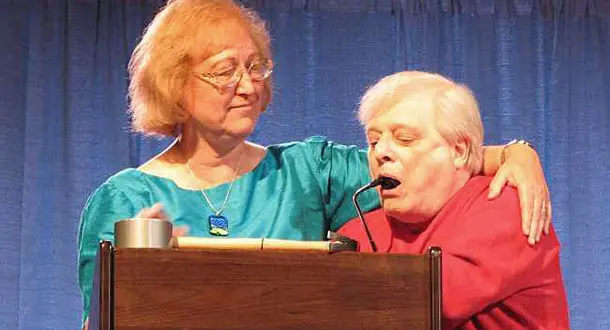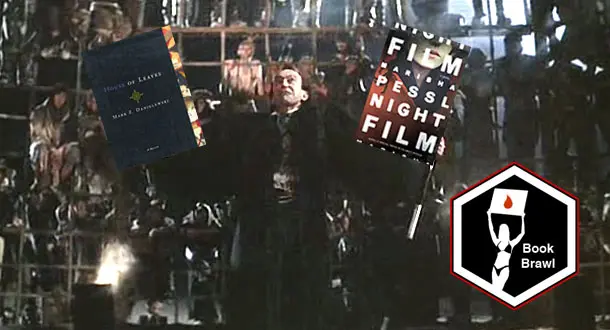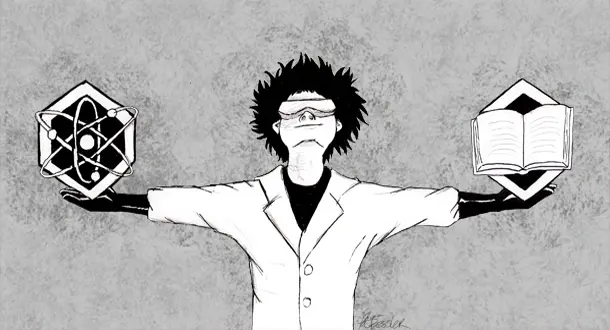Menu
Columns
Showing 3546 Columns
Showing 3546 Columns
November 27th, 2013

Forget J.F.K., the grassy knoll, and any conspiracies theories you were planning to debunk this month, because November 22nd marks the 50th anniversary of a much bigger tragedy: the death of C.S. Lewis, author of the classic children's series, The Chronicles of Narnia. Clive Staples Lewis (or "Jack" as his old buddy John Ronald Reuel called him, another spooky J.F.K. parallel) was one of the most influential English writers of the 20th century. To celebrate the man's life 50 years after his death, to celebrate his 115th birthday (Nov.
Read Column →November 26th, 2013

It's November, which means Facebook's alight with thousands of "I'm thankful" posts. While 30 Days of Thankful feels overwhelming to me (and sometimes forced and a bit saccharine), I wondered what would happen if I tried to list items for which I'm thankful, with a bit of a writer's slant. Here's what I came up with...my Thankful Writer's Top Ten List.
Read Column →November 26th, 2013

Illustration by Henry Holiday is public domain For those of you who read a column's title and sprint for the comments, pants around your ankles in anticipation of the self-righteous hot and coily you intend to deposit, let me preface this by saying I'm guilty of everything I'm about to address. So save the figurative unleashing of your bowels for someone else. This isn't the proper forum for such leavings, and you risk leaving skidmarks on the underwear of your reputation. That being said...
Read Column →November 26th, 2013

With the recent release of Ender’s Game, many of you were made aware of the controversy surrounding Orson Scott Card, his homophobic comments, and his efforts to fight marriage equality. It was the rare occasion of something well-known in the science fiction community reaching a larger audience. In the spirit of that exposure, I’m going to share five more controversies that rippled through our small community. Be warned: there’s racism, sexism, and generally dickish behavior below.
Read Column →November 25th, 2013

Photo by Daquella manera Maybe you work a full-time job. Maybe you’re part-time. Maybe you’re a stay-at-home parent. Maybe you’re making enough off your writing to call it a living. Whatever your situation, you’ve got twenty-four hours in a day and at one point or another, you’ve probably cultivated the perfect set of distractions to keep you from your writing.
Read Column →November 25th, 2013

I’m going to be doing something a little different this column. Instead of dissecting one of my stories, I’m going to dissect a classic short story, “Where Are You Going, Where Have You Been,” by Joyce Carol Oates. This may be one of the most heavily anthologized and taught stories ever, and that’s no exaggeration. It’s a beautifully written story, where the tension slowly builds, very creepy and distressing in its subtleties—surreal and dark, rooted in the real world, with hints of something supernatural at hand.
Read Column →November 22nd, 2013

LURID: vivid in shocking detail; sensational, horrible in savagery or violence, or, a guide to the merits of the kind of Bad Books you never want your co-workers to know you're reading.
Read Column →November 22nd, 2013

"People are suckers for charlatans who provide positive advice (what to do), instead of negative advice (what not to do)," says professionally grumpy Nassim Taleb. My April column on how to create good writing habits seems to have been enough of a success for me to wonder whether I'm a charlatan. So, in the spirit of giving negative advice, here are five things I think you shouldn't do when trying to get your writing done.
Read Column →November 22nd, 2013

When anything comes along which seems so unusual and unique that it’s beyond imitation, the one thing you can be sure of is that someone will try to imitate it. Or actually, lots of people. And the other thing you can be sure of is that any subsequent work which bears even a passing resemblance to the original will be decried as a pale, inferior simulacrum. Comparisons between Mark Z. Danielewski’s seminal House of Leaves and Marisha Pessl’s Night Film have already been drawn, usually to the detriment of Pessl’s work.
Read Column →November 21st, 2013

Amnesia is the O Fortuna of the literary fiction world. It's a popular, serious theme which has been used so often it borders on parody. We have seen countless iterations of the amnesiac hero. The disorder has been used in storytelling at least as early as the 1600's with Giambattista Basile's The Dove, and continues to make appearances in our books and movies today.
Read Column →Submitting your manuscript?
Professional editors help your manuscript stand out for the right reasons.
